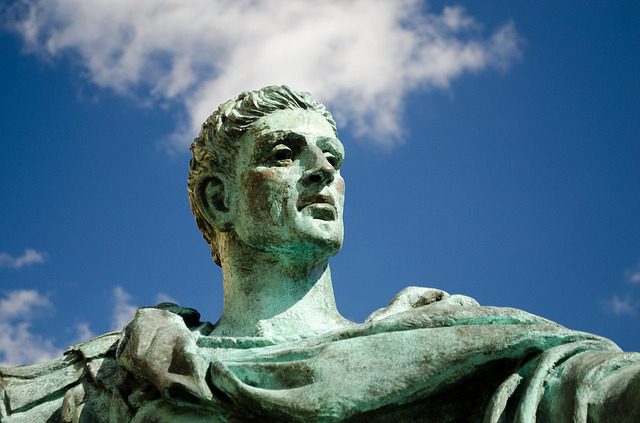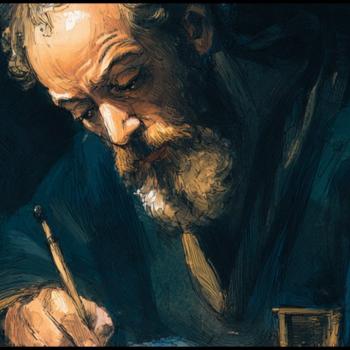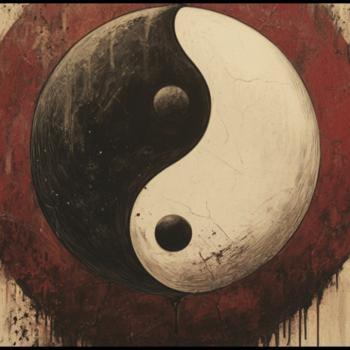
If you listen to any Bible Scholar or Christian teacher long enough and you’ll no doubt hear something – good or bad – about Constantine.
Some think he was God’s gift to the Church – because he helped to end persecution against Christians and gave Christianity legitimacy in the Roman Empire.
Others doubt the sincerity of his conversion experience – because the Jesus in his vision only showed up to bless his battle plans and helped him to kill lots of those who opposed the Roman Empire. [And that doesn’t sound like the Jesus we see in the Gospels].
Still others say that Constantine introduced hierarchy into the Church, giving more prominence to the Bishop, and later to the Pastor after the Reformation.
And, still others add that Constantine also merged the Church with the power of the State and entangled Christianity with Empire.
I agree with all but the first group of people.
What’s more, I also think that Constantine’s influence on the Christian Church was tragic and un-Christlike. He took the Nazarene Movement away from humility, love and service to all, and made it about power structures, hierarchy and the fear-based control of others.
Unfortunately, one of the primary ways that Constantine accomplished this dark shift in Christianity was by overseeing the Canonization of Scriptures which were then used to determine who was “in” and who was “out”.
Soon after this is when the church started persecuting Herself. [Ironically, since many embraced Constantine for helping to end Roman persecution of the Church, but then very quickly the Church was doing all the persecuting of Christians, leaving the Romans more free time to oppress the other trouble-makers].
As my friend, Mike Schellman noted:
“Before Constantine, Christians made judgments about the legitimacy of certain writings. After Constantine, writings made judgments about certain kinds of Christians. That is not to say that certain outsiders were once insiders – but rather that no group [previously] had the authority of the state backing up its claim on the truth.”
This is the key. In the years prior to Constantine’s suspicious “conversion” to Christianity, Christians disagreed about all sorts of things. But, there was a balance of power where no one group had any authority to condemn any other group. Nor is there much indication that they wanted to do so. Remember, all Christians were equally persecuted by the State. So, even if I might disagree with a brother or a sister about the nature of Christ, or the atonement – or even about which of Paul’s epistles were legitimate – at the end of the day we were all in the same family of God. The persecution they faced was blind to any particular doctrines. That meant that most Christians were also a bit blind about it, too.
Now, it’s sadly true that establishing power structures within the Body of Christ was something that had already started to formulate prior to Constantine’s influence. But, once he arrived on the scene, it became another useful tactic to re-fashion Christianity into a club that – along with a single definition of Orthodoxy – could be used to beat people into submission.
Under Constantine, Christianity became more about exercising power over others, whereas previously it had been more about acting in humility and love to exercise a quiet form of “power under” others.
Once the Christian Church had power – the power of the Sword which had previously rested in the hands of the State – She lost Her true power – the kind that comes from sincere love, genuine compassion and the miracle of a transformed life.
Orthodoxy quickly overshadowed Orthopraxy as the standard for determining who was – and who was not – a Christian. Prior to Constantine, a Christian was defined as someone who put the teachings of Jesus into practice in their daily life. That’s Orthopraxy. But after Constantine’s influence, a Christian was defined by what someone believed, and whether or not they agreed with the doctrines of the “true” Church. That’s Orthodoxy.
For my money, I’d rather go back to a version of Christianity that is more focused on being Christlike, than on determining who is right and who is wrong about theology.
One version is a lot closer to what Jesus set in motion. The other smells a bit too much like something a Pagan Emperor might dream up the night before a big, bloody battle against the enemies of the Empire.
Give me Jesus.
**
LISTEN to a 2 part debate between myself and Christian Historian Al Baker called “What’s Go Great About Constantine?”
**
Keith Giles was formerly a licensed and ordained minister who walked away from organized church 11 years ago, to start a home fellowship that gave away 100% of the offering to the poor in the community.
His new book “Jesus Unbound: Liberating the Word of God from the Bible”, is available now on Amazon and features a Foreword by author Brian Zahnd.
He is also the author of the Amazon best-seller, “Jesus Untangled: Crucifying Our Politics To Pledge Allegiance To The Lamb” with a Foreword by Greg Boyd.
Keith also co-hosts the Heretic Happy Hour Podcast on iTunes and Podbean. He and his wife live in Meridian, Idaho, awaiting their next adventure.
BONUS: Want to unlock exclusive content including blog articles, short stories, music, podcasts, videos and more? Visit my Patreon page.













